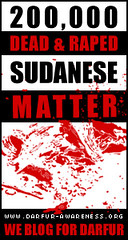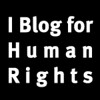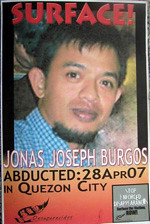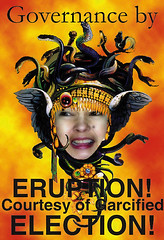On torture and extrajudicial justice
The off-on issue of torture, a.k.a. as enhanced interrogations, regarding captured terror suspects recently made the rounds of Internet forums obviously fanned in no small measure by a Reuters story that had our own Antonio Taguba, a retired major general of the U.S. armed forces credited for Abu Ghraib prison report, being quoted as saying that while the pictures about the alleged abuses in that Iraq prison "show torture, abuse, rape and every indecency," he also supported Obama's decision not to release them. "The mere depiction of these pictures is horrendous enough, take my word for it," he added.
Taguba echoed President Obama's stand on the matter even though the latter, as he also had backtracked in some other controversial issues, had previously pledged to disclose all images relating those abuses and other U.S.-run prisons in Iraq. The pro-con discussions that ensued only highlight the touchy nature of the subject and perhaps would remain in that way indefinitely.
There were those who say that Taguba's description is useful in justifying why the pictures would be even more frightful and scare the public, to the embarrassment of U.S. soldiers. There was even one who suspected financial interests. On my part I was puzzled why Taguba had to describe the alleged abuses in graphic detail and then go on to say that he is not for releasing them because it would "imperil our troops." I thought that the way he described it, there's no more need for releasing the photos.
On a larger scale, the discussions verged on the subject of torture as it is used in some parts of the world. It is supposedly not the monopoly of extremists or torture organizations that may or may not be affiliated with government agencies "but a group of people dedicated to their cause and mission whether the employment of such acts is inhumane, barbaric or the other way around." One said that all countries, whether they are considered "terrorist" or dictatorial countries and even democratic countries employ some form of terroristic mechanics to get information from terrorists. In the case of the U.S., it was alleged that torture was first employed by American soldiers in 1905 during the Filipino-American war. Even today, it was said, torture is being used by the police enforcement in this country and several guilty verdicts had been overturned because of this fact.
Oddly, no one mentioned about the atrocities committed by Japanese soldiers and their Korean cohorts even to Filipino old folks and children during World War II. I asked to no one in particular that, considering that the U.S. is at war with a very cruel enemy "who is sawing off the victim's head without anesthesia," what should American soldiers do to also plant fear on the enemy. One responded that it seems "waterboarding" is far more effective and less torturous than cutting off fingers, cigaret burns, pulling off teeth or whipping. Myself, I thought that in the case of U.S. intelligence agencies, this torture thing was prompted by the need to immediately react in the aftermath of 911. The U.S. then was pushed to the wall trying to prevent anticipated wave of attacks and the need to recoup its intelligence capabilities badly weakened as a result of the downsizing in the past years. America might have felt so helpless at that time against vicious criminals who don't give a second thought about mindless, wanton killings and who are not afraid to die themselves because there are so many virgins waiting for them in heaven.
The Philippine scene
Recently, I circulated the story about Melissa Roxas, a 32 year-old Filipino-American activist based in Los Angeles, who was reportedly taken by at least eight fully-armed, bonnet-clad men in broad daylight while she was doing social work in a barrio in La Paz, Tarlac on May 19 together with two others, Juanito Carabeo and John Edward Handoc. She and Carabeo were released a week later and since then Roxas had made allegations that Philippine soldiers interrogated, tortured, and incarcerated her in Fort Magsaysay, Nueva Ecija, prompting Lt. Gen. Isagani Cachuela, chief of the Northern Luzon Command (Nolcom), to direct Maj. Gen. Ralph Villanueva, commander of the Army's 7th Infantry Division, to conduct a probe.
Unfortunately, Villanueva tainted the credibility of the proposed investigation by stating beforehand that "We have reason to believe that the alleged abduction was stage-managed to put the blame on our soldiers who are doing a good job of maintaining peace and order in Central Luzon." By such prejudgment, the intended investigation could be viewed as a moro-moro in progress.
In another instance, a discussion thread developed about a story of a Manila judge who issued judgment against two former mayors of a town in Masbate province in the killing of a school district supervisor over an election-related dispute in 2004. I responded that while the story is a welcome development, it is an exceptional one because of the fact that influential persons were convicted. But even that singular victory for justice would have been uncertain had not the Supreme Court transferred the trial to Manila.
Up there with acts of torture as worrisome topics are "extra judicial justice" or "political killings" and searches in either Yahoo or Google will lead one to entries that mostly pertain to the Philippines.
On April 6, Kenneth Roth, executive director of Human Rights Watch, was quoted by GMA News saying:
"The government has not yet prosecuted a single soldier for extra-judicial killings. And until it establishes accountability for those crimes, it risks a recurrence down the road. What's needed now is to end impunity by bringing the military under the rule of law and show that these kinds of killings will not be tolerated," he said.
According to Amnesty International, in 2006, following international pressure, GMA established the Task Force Usig (TFU) to investigate political killings. A special Commission of Inquiry known as the Melo Commission, whose mandate ended in June 2007, was also established to make policy recommendations on extrajudicial executions.
As of January 2008, the TFU had investigated 141 cases and filed 80 cases for criminal proceedings. However, because the investigations are inadequate, few cases result in convictions. The TFU and the Melo Commission have had limited success in ensuring justice for survivors and families of victims. Families often cite flaws in the justice process, such as delayed investigations, inadequate crime scene analysis leading to a lack of forensic evidence, and unwillingness to interview suspected military and police personnel. To date, most of those responsible for the killings of leftist political figures or activists have not been brought to justice.
Witnesses in cases under investigation by the authorities are particularly vulnerable to intimidation and reprisals, and sometimes even death. Many have complained repeatedly about the failure of the police to provide protection for them and their families, and said they have lost confidence in the ability of the Department of Justice to provide protection."
Philippine human rights group Karapatan has recorded 16 killings during the first three months of this year, it is said. Roth, a former US prosecutor, said that the worsening human rights abuse in the Philippines is "very unusual" for a country supposedly under a "vibrant democracy." He said, "It's hard to find such situation in other Asian democracies. There wouldn't be another Asian democracy like that. You should go as far as Sri Lanka to find a parallel. But in East Asia or Southeast Asia, none at all."
Taguba echoed President Obama's stand on the matter even though the latter, as he also had backtracked in some other controversial issues, had previously pledged to disclose all images relating those abuses and other U.S.-run prisons in Iraq. The pro-con discussions that ensued only highlight the touchy nature of the subject and perhaps would remain in that way indefinitely.
There were those who say that Taguba's description is useful in justifying why the pictures would be even more frightful and scare the public, to the embarrassment of U.S. soldiers. There was even one who suspected financial interests. On my part I was puzzled why Taguba had to describe the alleged abuses in graphic detail and then go on to say that he is not for releasing them because it would "imperil our troops." I thought that the way he described it, there's no more need for releasing the photos.
On a larger scale, the discussions verged on the subject of torture as it is used in some parts of the world. It is supposedly not the monopoly of extremists or torture organizations that may or may not be affiliated with government agencies "but a group of people dedicated to their cause and mission whether the employment of such acts is inhumane, barbaric or the other way around." One said that all countries, whether they are considered "terrorist" or dictatorial countries and even democratic countries employ some form of terroristic mechanics to get information from terrorists. In the case of the U.S., it was alleged that torture was first employed by American soldiers in 1905 during the Filipino-American war. Even today, it was said, torture is being used by the police enforcement in this country and several guilty verdicts had been overturned because of this fact.
Oddly, no one mentioned about the atrocities committed by Japanese soldiers and their Korean cohorts even to Filipino old folks and children during World War II. I asked to no one in particular that, considering that the U.S. is at war with a very cruel enemy "who is sawing off the victim's head without anesthesia," what should American soldiers do to also plant fear on the enemy. One responded that it seems "waterboarding" is far more effective and less torturous than cutting off fingers, cigaret burns, pulling off teeth or whipping. Myself, I thought that in the case of U.S. intelligence agencies, this torture thing was prompted by the need to immediately react in the aftermath of 911. The U.S. then was pushed to the wall trying to prevent anticipated wave of attacks and the need to recoup its intelligence capabilities badly weakened as a result of the downsizing in the past years. America might have felt so helpless at that time against vicious criminals who don't give a second thought about mindless, wanton killings and who are not afraid to die themselves because there are so many virgins waiting for them in heaven.
The Philippine scene
Recently, I circulated the story about Melissa Roxas, a 32 year-old Filipino-American activist based in Los Angeles, who was reportedly taken by at least eight fully-armed, bonnet-clad men in broad daylight while she was doing social work in a barrio in La Paz, Tarlac on May 19 together with two others, Juanito Carabeo and John Edward Handoc. She and Carabeo were released a week later and since then Roxas had made allegations that Philippine soldiers interrogated, tortured, and incarcerated her in Fort Magsaysay, Nueva Ecija, prompting Lt. Gen. Isagani Cachuela, chief of the Northern Luzon Command (Nolcom), to direct Maj. Gen. Ralph Villanueva, commander of the Army's 7th Infantry Division, to conduct a probe.
Unfortunately, Villanueva tainted the credibility of the proposed investigation by stating beforehand that "We have reason to believe that the alleged abduction was stage-managed to put the blame on our soldiers who are doing a good job of maintaining peace and order in Central Luzon." By such prejudgment, the intended investigation could be viewed as a moro-moro in progress.
In another instance, a discussion thread developed about a story of a Manila judge who issued judgment against two former mayors of a town in Masbate province in the killing of a school district supervisor over an election-related dispute in 2004. I responded that while the story is a welcome development, it is an exceptional one because of the fact that influential persons were convicted. But even that singular victory for justice would have been uncertain had not the Supreme Court transferred the trial to Manila.
Up there with acts of torture as worrisome topics are "extra judicial justice" or "political killings" and searches in either Yahoo or Google will lead one to entries that mostly pertain to the Philippines.
On April 6, Kenneth Roth, executive director of Human Rights Watch, was quoted by GMA News saying:
Non-government organizations have recorded at least 992 cases of extra-judicial killings, and another 193 cases of disappearance since 2001 when Gloria Macapagal Arroyo assumed the presidency.The international human rights watchdog had renewed its call for the Arroyo administration to stop paying lip service to addressing cases of extra-judicial killings in the Philippines. Roth said that the administration has still failed to establish accountability for the crimes because military personnel accused in the killings remain scot-free.
"The government has not yet prosecuted a single soldier for extra-judicial killings. And until it establishes accountability for those crimes, it risks a recurrence down the road. What's needed now is to end impunity by bringing the military under the rule of law and show that these kinds of killings will not be tolerated," he said.
According to Amnesty International, in 2006, following international pressure, GMA established the Task Force Usig (TFU) to investigate political killings. A special Commission of Inquiry known as the Melo Commission, whose mandate ended in June 2007, was also established to make policy recommendations on extrajudicial executions.
As of January 2008, the TFU had investigated 141 cases and filed 80 cases for criminal proceedings. However, because the investigations are inadequate, few cases result in convictions. The TFU and the Melo Commission have had limited success in ensuring justice for survivors and families of victims. Families often cite flaws in the justice process, such as delayed investigations, inadequate crime scene analysis leading to a lack of forensic evidence, and unwillingness to interview suspected military and police personnel. To date, most of those responsible for the killings of leftist political figures or activists have not been brought to justice.
Witnesses in cases under investigation by the authorities are particularly vulnerable to intimidation and reprisals, and sometimes even death. Many have complained repeatedly about the failure of the police to provide protection for them and their families, and said they have lost confidence in the ability of the Department of Justice to provide protection."
Philippine human rights group Karapatan has recorded 16 killings during the first three months of this year, it is said. Roth, a former US prosecutor, said that the worsening human rights abuse in the Philippines is "very unusual" for a country supposedly under a "vibrant democracy." He said, "It's hard to find such situation in other Asian democracies. There wouldn't be another Asian democracy like that. You should go as far as Sri Lanka to find a parallel. But in East Asia or Southeast Asia, none at all."
*********************************************************************************
 Dionesio C. Grava - Part-time community journalist based in Los Angeles and editorial writer at Forum Asia.
Dionesio C. Grava - Part-time community journalist based in Los Angeles and editorial writer at Forum Asia. 
POGB will not sell, exchange, use or allow any 3rd party access to your email for
any other purposes without exception, email exclusively for article updates only.
























0 Speak Out:
Post a Comment